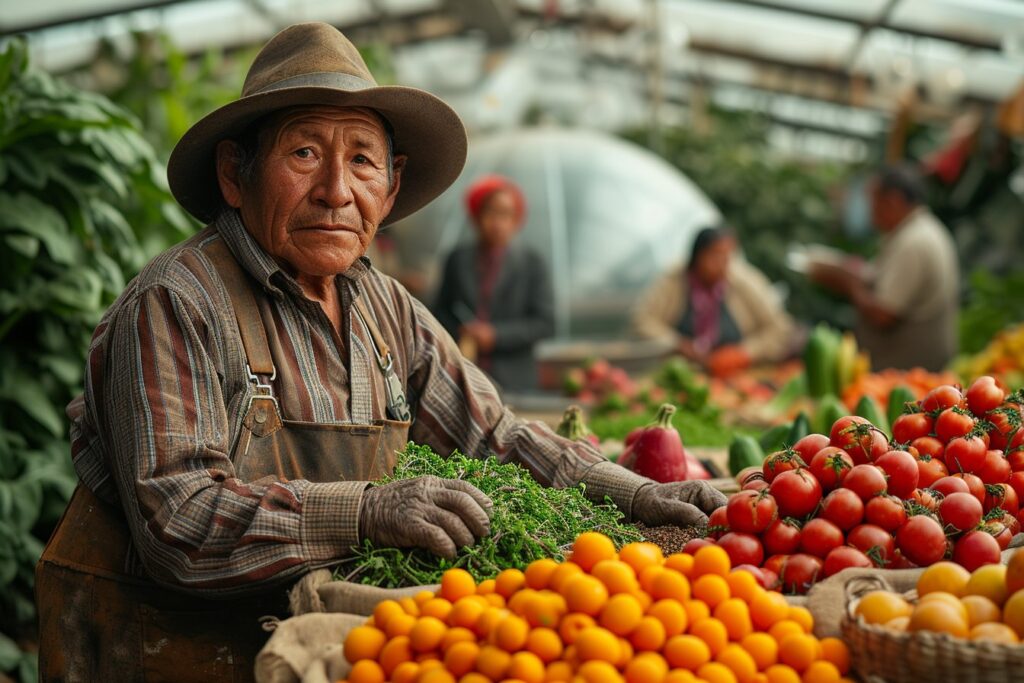Unrest Spreads as Farmers Demand Protections and Financial Support
In recent weeks, France has witnessed significant unrest among its farming community, with tractor convoys heading towards Paris and other major cities and the disruption of essential services. This growing dissatisfaction also spans across several European countries, including Germany, Romania, Belgium, and Italy.
Nearly 80 Arrested at Rungis Wholesale Market Protest
On January 31, 2024, French police arrested almost 80 people during a protest at the Rungis wholesale market complex near Paris. The same day, convoys of tractors continued to move closer to key locations like Paris and Lyon, despite warnings from authorities about the extent of their actions.
These Rungis protests had been anticipated, but authorities warned that interference with this essential facility, which supplies food and other necessities for the Paris region and key infrastructures such as airports, would cross a red line. Nonetheless, defying these warnings, farmers broke into the complex’s storage area, causing damage and resulting in arrests.
A Snapshot of the Struggles Facing European Farmers
- Economic pressures such as low income and limited financial support
- Tax burdens and stringent regulations
- Competition from foreign markets with lower costs of production
- Discontent with the current Common Agricultural Policy (CAP)
Demonstrations Across Europe Put Pressure on EU Authorities
The widespread protests by farmers signal a broader crisis within the agricultural sector throughout Europe. Many farmers are demanding higher incomes, less red tape, and protection from foreign competition. Arnaud Rousseau, head of France’s largest agricultural union FNSEA, highlights these expectations, stating that “there are huge expectations among farmers.”
In reaction to these demands, European Commission President Ursula von der Leyen cited the importance of EU farmers in providing food for European citizens and announced a series of measures that promise higher payouts under the current CAP system.
Farmers’ Discontent with Current EU Policies
However, many farmers believe that these promises don’t go far enough, with some claiming that they will only materialize after three or four years. One farmer, Johanna Trau from Alsace, France, expressed her doubts by saying, “I’ll believe it when I see it.”
Escalating Protests Causing Disruptions Across France
The protests, which began a week ago, saw farmers using tractors, hay bales, and other equipment to set up roadblocks, disrupting traffic. By midday on January 31, 6,500 farmers and 4,500 tractors were blockading 80 spots along major roads across the country. Alongside Paris, demonstrators in Lyon also aimed to encircle the city, while several other locations across France experienced disruptions to commuter traffic.
Simultaneously, protests emerged in various other European countries such as Italy, where more than 300 farming vehicles gathered near Milan, and hundreds of farmers and shepherds demonstrated in the Sardinian port of Cagliari.
Time for Change: A Turning Point for European Agriculture?
As the protests continue to spread across Europe, garnering international attention, this could signify a turning point for the agricultural sector in terms of both public awareness and policy changes. Governments across the affected countries may need to find solutions to address the challenges faced by farmers and ensure the sector’s long-term sustainability.
With growing expectations from the farming community, it remains to be seen whether these protests will lead to concrete change or continue to escalate as dissatisfaction with the current EU policies prevails.





